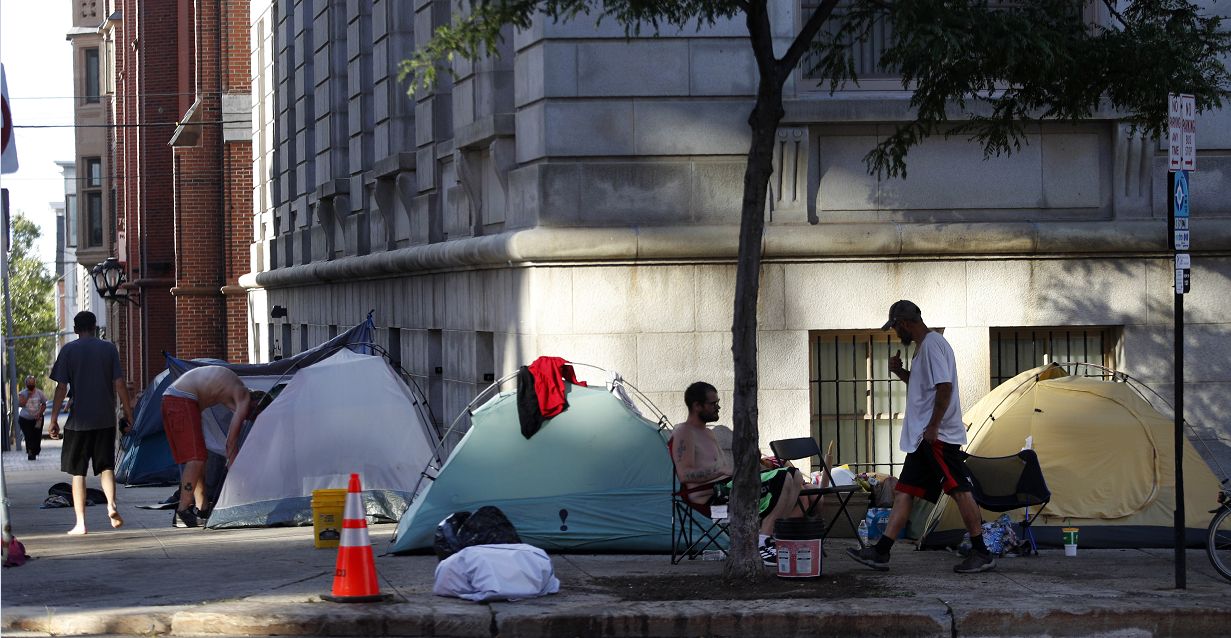Maine’s latest efforts to combat homelessness include a new partnership between MaineHousing and a national organization that is working to help improve data collection and coordination of homeless services in Maine.
New York City-based nonprofit Community Solutions is building a national program it calls a “movement,” Built for Zero, that organizers say can eliminate homelessness. The movement initially partnered with MaineHousing in February to help set up a series of contracts to hire nine service coordinators throughout the state, and plans to ramp up efforts over the summer.
In a statement in February, MaineHousing Director Daniel Brennan noted that the partnership culminated an analysis that began in 2020 on how to overhaul the state’s homelessness response system.
“The award of these contracts is a critical step in a more than two-year process of reforming our response to individuals and families experiencing homelessness in Maine,” Brennan said. “Guided by the work of the Statewide Homeless Council this redesign will put Maine ahead of the curve in the U.S.”
Built for Zero’s website proposes that homelessness is “solvable,” and can actually be eliminated as a social problem. While that claim might sound lofty, Melanie Lewis Dickerson, the portfolio lead for Community Solutions who is working with MaineHousing, said this week that the movement, which launched in 2015, has already shown signs of success. To date, she said, Built for Zero has partnered with more than 90 individual communities, including Detroit and Washington, D.C.
Of those, Dickerson said, 14 municipalities have already produced results. The community of Riverside, California, she said, has eliminated homelessness among its veteran population, and Bakersfield, California has eliminated chronic homelessness as well.
“We have early proof that it’s possible,” she said.
One of the big secrets to that success, Dickerson said, is establishing reliable data, crucial to understanding the extent of the problem. Very often, she said, information about homelessness in many communities and states, including Maine, is incomplete. Even basic information, such as the number of homeless statewide, and when they are entering and exiting assistance programs, has gaps and holes in it. Often, she said, the problem is care providers on the local level either aren’t submitting information to a statewide system at all, or they aren’t providing the right kinds of data.
“It is a very key part to our model, to our approach. We believe you can’t solve a problem you can’t see,” she said.
The first stages of the work include hiring nine statewide coordinators. While MaineHousing paid to hire the coordinators by arranging state funding, the coordinators are each employed on a contract basis by one of the partner organizations MaineHousing works with statewide.
One of the new coordinators, Nicole Frydrych, is based in Augusta, and will cover Kennebec and Somerset counties. She started as a coordinator at the beginning of April, and works for the nonprofit Volunteers of America Northern New England.
Frydrych said she previously worked with homeless veterans in Maine through Cabin in the Woods, a program run by Volunteers of America. She said many of America’s veterans, particularly those of the Vietnam War, found themselves homeless after returning from overseas.
“There is a large amount of mental illness that goes with being a veteran,” she said.
Frydrych is also interested in focusing on the chronically homeless, or people who find themselves drifting in and out of shelters or other short-term options.
“They may be (temporarily) housed, but obviously something happens and they become homeless again,” she said.
Frydrych said her job will be to first reach out to other local organizations or shelters in her counties to establish contact and a formal network of assistance. From there, she said, the coordinators can work through the network to identify potential new programs or projects to fight homelessness statewide.
Frydrych also said she wants to streamline data collection, saying she agrees fully with Built for Zero’s goal of accurate documentation.
“I like data because it can paint a picture,” she said.
Frydrych said she believes establishing a statewide network of assistance is possible, but it will take time. She estimates she and her fellow coordinators will spend the next six months working to establish the network.
“We’re still in the starting point,” she said.
Dickerson said her role with Built for Zero is to serve as an advisor to MaineHousing, helping it to work with the coordinators. She said the program takes a success-breeds-success approach — as it shows signs of working, it will gather momentum and motivate more community leaders and service providers to get on board.
“If we can prove in enough places and enough settings that this is possible, hopefully, we can build a roadmap for success,” she said.





